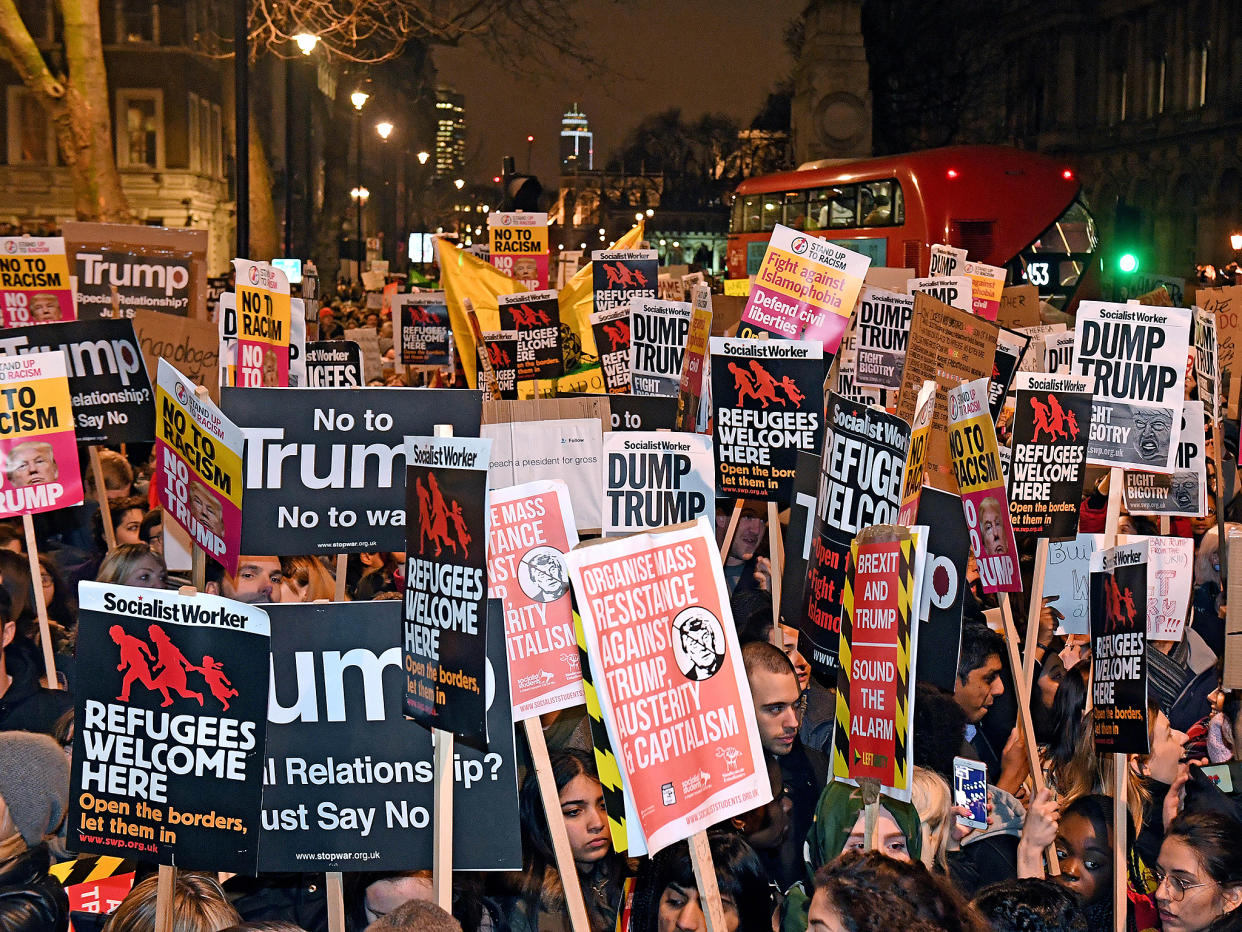Trump adds Chad to list of countries included in his travel ban, baffling foreign policy experts

Experts are baffled by the addition of Chad to the latest version of Donald Trump’s travel ban.
The so-called “Muslim ban” now also includes restricting North Korean travellers from coming into the US in addition to Chad, Yemen, Syria, Somalia, Iran, Libya, and Venezuela.
The administration said the reason for the Sahel region country’s inclusion, in particular, was because Chad failed to “adequately share public-safety and terrorism-related information.”
“What does that mean? Chad is desperately poor. ... It has a tough army but limited bureaucratic capacity,” John Campbell, a former US ambassador to Nigeria, told BuzzFeed News.
Other experts said the same could be said for several developing nations and even some wealthier nations bogged down with bureaucratic procedures or shifting political leadership.
Chad’s addition has baffled regional experts and former State Department officials as it plays a cooperative and key role in the fight against extremist groups like Isis-West Africa, al-Qaeda, and Boko Haram.
“One explanation for why the Trump administration added Chad is incompetence,” Geoff Porter, President of North Africa Risk Consulting, told The Independent.
He added that “it is entirely unclear” why Chad was included in the new ban when the number of Chadians in the US or visiting the US “is less than negligible.”
It provided the only continental force in the Trans-Saharan Counterterrorism Partnership, which is funded by the US, as well as providing troops to the UN Peacekeeping force in nearby Mali.
He explained the country’s military force has been “instrumental in combating al Qaeda affiliated groups in neighbouring countries like Niger and Nigeria” as well.
For its part, Chad summoned the US Ambassador for a meeting with Prime Minister Albert Pahimi Padacké.
The government said it was “astonished” and “baffled” by the Trump administration’s decision and said it “severely tarnishes the image of Chad, and the strong relationship between the two countries, particularly in the fight against terrorism.”
Chad also plays a key role in stabilisation efforts in an often volatile region it shares with Sudan, which was on Mr Trump’s last travel ban but removed from this version.
The Sudanese government is still considered a state sponsor of terrorism and accused of carrying out a genocide in the Darfur region by the US State Department.
The agency’s Trafficking in Persons report issued earlier this year also listed the Sudanese government as a country that “does not fully meet the minimum standards for the elimination of trafficking and is not making significant efforts to do so,” particularly in terms of the use of child soldiers.
Mr Porter points out that Chadian President Idriss Déby’s son even graduated from the United States Military Academy at West Point in 2015, indicating even greater ties between the two countries.
The US military not only has a base in the country but recently a 20-nation exercise with US Africa Command to fight extremists was held there.
The US Army, Navy, and Marines have also trained Chadian forces and the State Department spent $300m (£22m) on a new embassy in the capital city of N'Djamena.
“I assume that Chadians find this gesture deeply insulting, to be singled out in this way when they’re providing troops in the fight against extremism and participating in these partnerships,” Jennifer Cooke, director of the Africa Program at the Center for Strategic and International Studies told Buzzfeed News
Mr Porter said that “there does not appear to be any security threat emanating from Chad that directly threatens US homeland security” either.
He mused that perhaps the administration was confusing terror group Boko Haram’s activity in the Lake Chad Basin region and assumed it only meant Chad, when in fact the region covers Nigeria, Niger, and Cameroon as well.
Some like Peter Billerbeck, a former defence aide to Senator Tim Kaine, wondered on Twitter whether proper experts at the Defence Department, State Department, and even French officials who have worked with Chadian forces to fight terrorism in Mali were consulted prior to the travel ban decision.
The new version of the travel ban also goes beyond the 90-day restriction in earlier forms that created mayhem and thousands of protesters at nearly every airport in the US shortly after Mr Trump took office in January.
It involves permanent travel restrictions on some countries and the addition of a non-majority Muslim countries - North Korea and Venezuela.
For the moment, the US Supreme Court has cancelled oral arguments on the travel ban after lower courts had placed injunctions on implementation of the previous version on grounds of religious discrimination - a legal argument which could be avoided with the latest version.
Tensions with North Korea have been on the rise as the isolated nation develops its nuclear weapons programme.
Venezuela has been embroiled in political controversy as President Nicolas Maduro created a separate parliament and jailed political dissidents while the country’s inflation rate is out of control.

